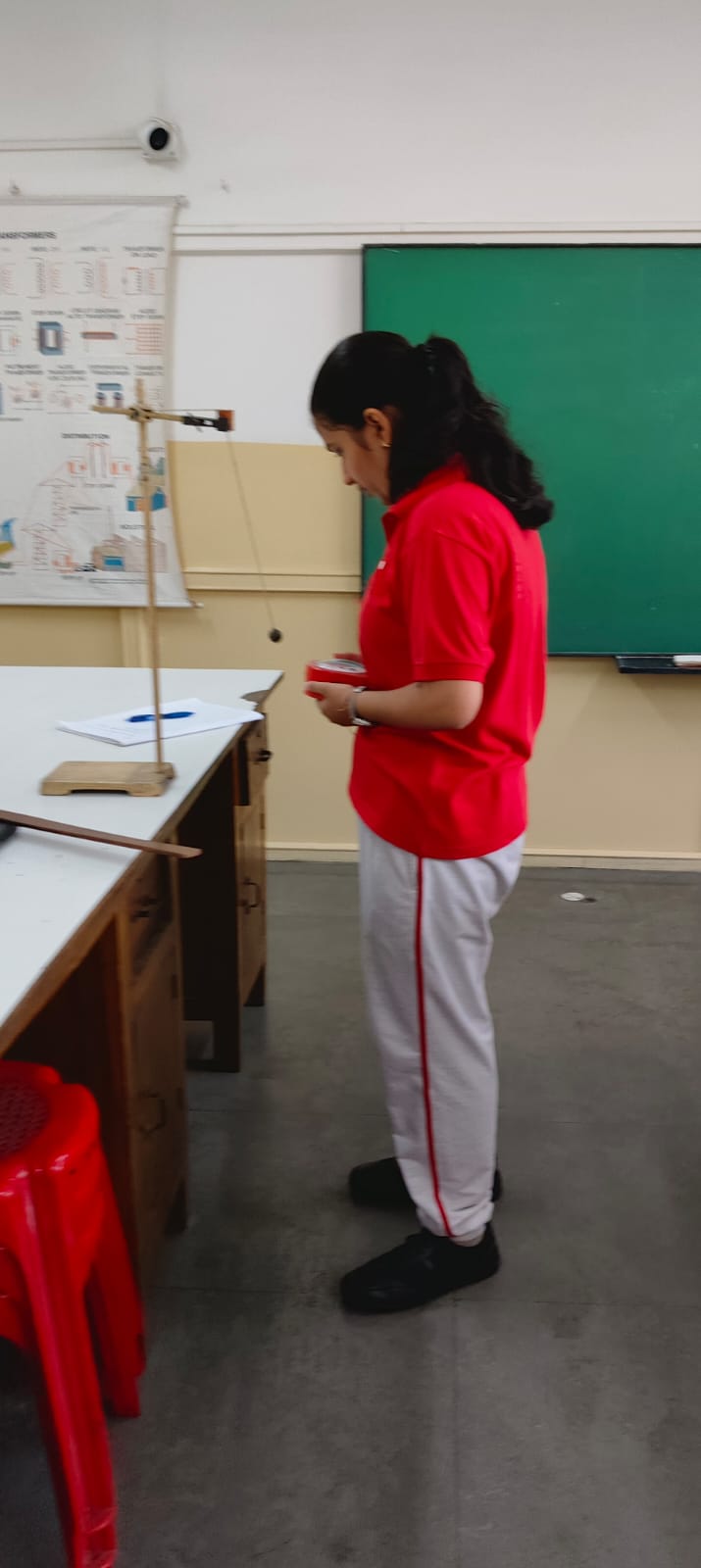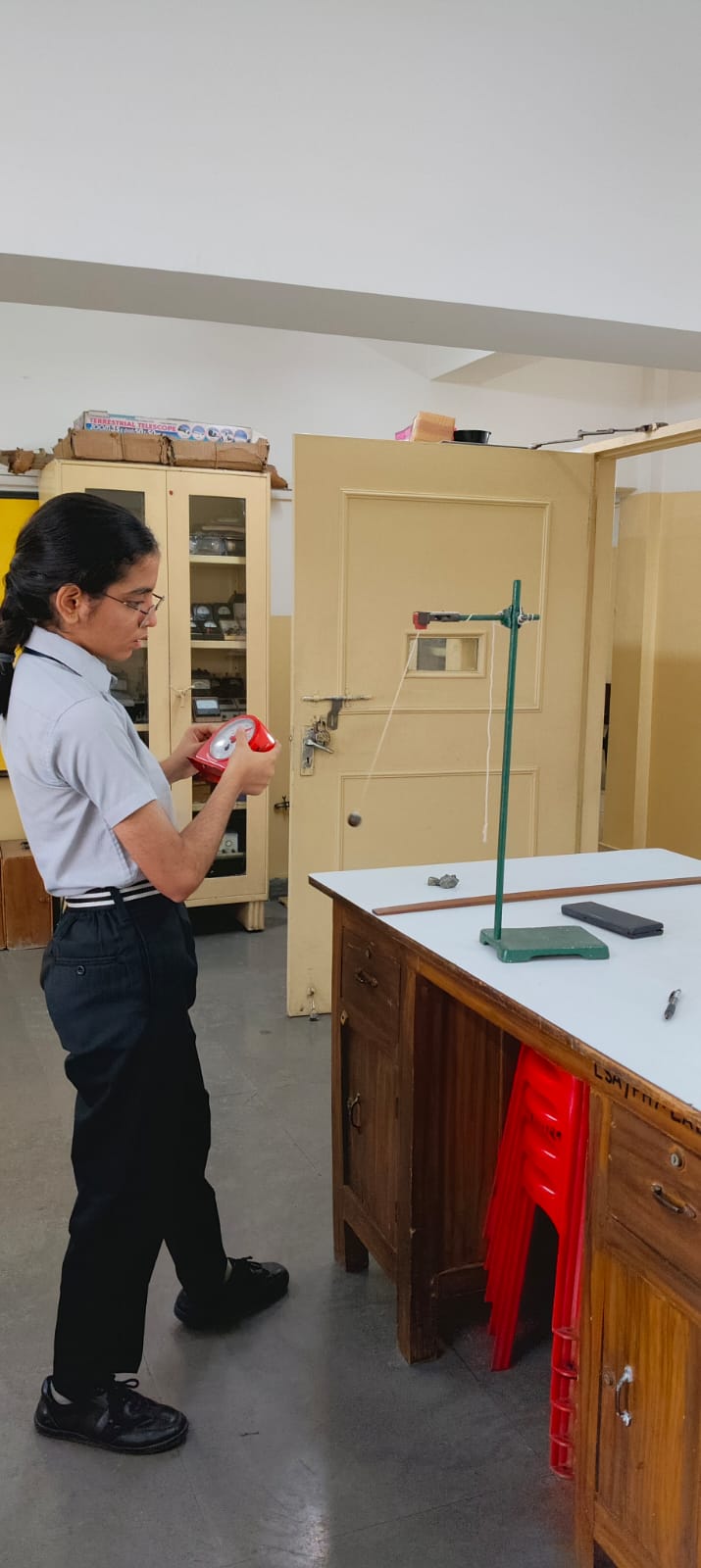Grade 9 Physics students were engaged in a hands-on laboratory experiment to explore the factors affecting the time period of a simple pendulum. The objective of the activity was to investigate the relationship between the length of the pendulum and its time period, a fundamental concept in classical mechanics.
Working in groups, students systematically varied the length of the pendulum and measured the time taken for 10 complete oscillations. Each measurement was repeated three times to ensure accuracy and to minimize the effects of random errors. The students then calculated the average time for each set of readings and determined the time period by dividing the average time by 10.
This practical investigation allowed students to apply theoretical knowledge to a real-world context, deepening their understanding of how the length of a pendulum influences its time period. The experiment also provided valuable opportunities for students to develop essential scientific skills such as precise measurement, data recording, averaging results, and interpreting patterns.
Overall, the session was a successful and enriching experience that highlighted the importance of experimentation in learning physics.


